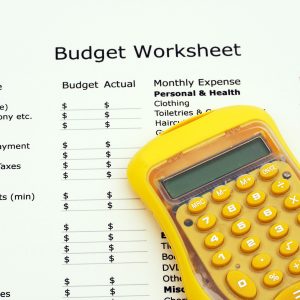Surely everyone knows how to avoid debt. Well, that’s not really the case. While people know they need to spend less than they make, that’s not always practical advice. There is much more to it than that. Here are some tips to avoid debt and start saving for the future.
Know Your Current Spending
Before you can stop yourself from getting into debt, you need to make sure you’re not already putting yourself into it. Look over your current spending and make sure it is not over the amount coming into your accounts each month. This isn’t always easy to spot, especially if you have a lot of different dates when money goes in and out of your account.
Set Up a Budget

Now you know how much you’re spending, it is time to focus on setting up a budget. You need to set spending limits for everything, including your regular bills, so that you only spend the amount that you earn.
If you have any current debts, focus on using any disposable income on them before you start saving for the future.
Have an Emergency Budget
You need to save a small amount each month. Just $10 per month is preferable over nothing at all. This is your emergency budget—the money you spend should your boiler break down or your washing machine need replacing.
It is not to spend on those shoes that are in the sale! Having an emergency budget will prevent you from using your credit card the next time there is a problem.
Reduce Your Current Credit Limit
If you have credit cards that are still in use, reduce the credit limit. If your cards aren’t in use, cut up as many as you can comfortably. You may want to keep one just for emergencies, but want to remove the temptation as much as possible. The lower your credit limit, the less temptation you have of maxing those cards out.
Don’t Be Tempted By Payday Loans

Those payday loans look very tempting when it comes to financial problems but they are more hassle than they are worth. The interest rates are astronomically high and they do a lot of damage to your credit rating, even if you do pay them back on time.
You will just end up pushing yourself financially next month. Avoid them and only spend the money you currently have. If you really need to borrow money for necessities, talk to friends and family members.
Prioritise Your Spending
This is usually part of your budget, but you need to decide which bits of your spending are more important than others. Take the time to prioritise it between the necessities, the special purchases and those luxuries.
If you have a little money left over, you can then determine where it can go and may find that the luxuries, like a new pair of shoes, really is a possibility.
Look for Free Things
Everyone needs to have fun, so look for some free things to do. You could spend time at a local art gallery or visiting a castle. You don’t need to spend a lot to enjoy your days.